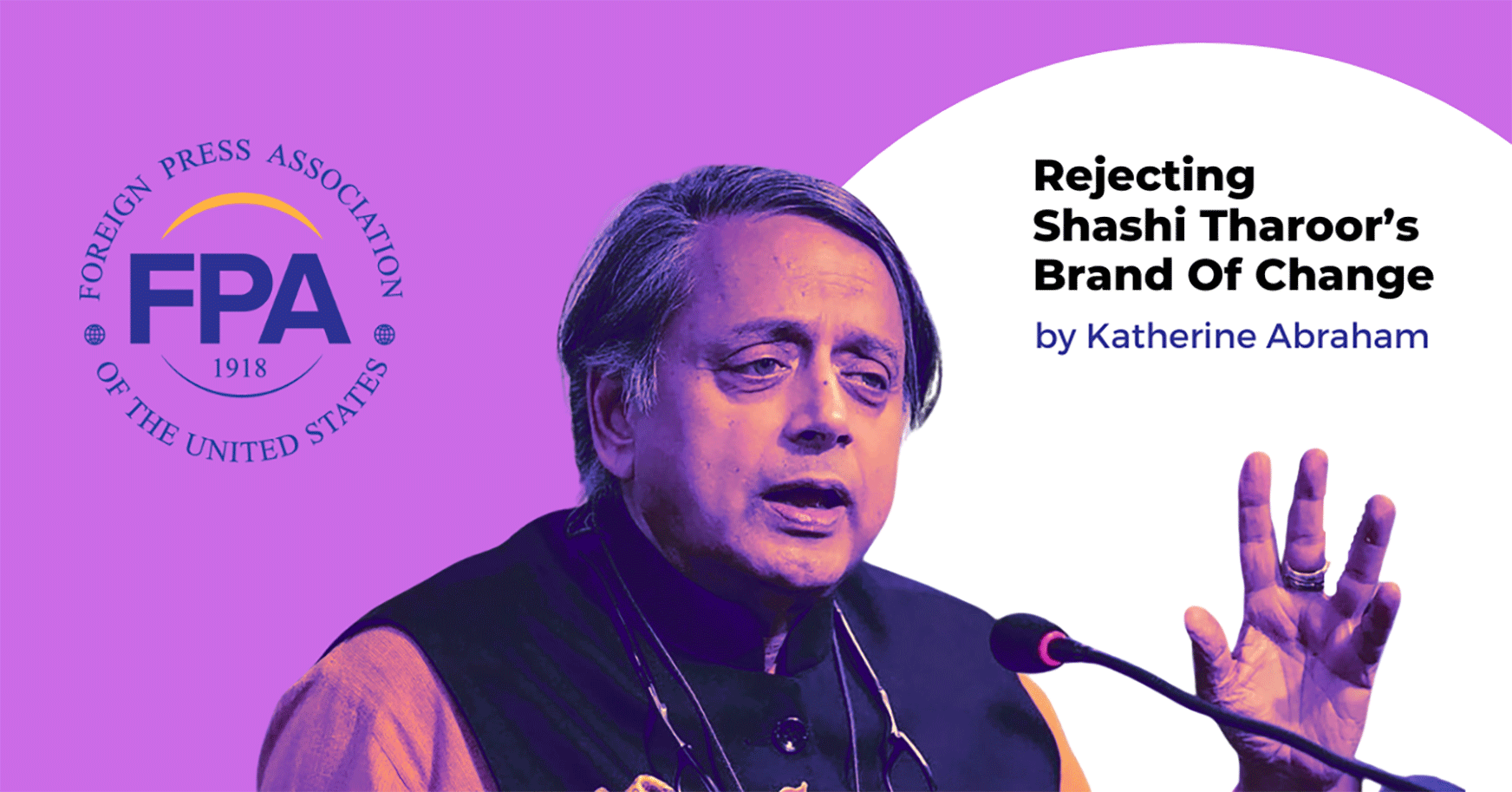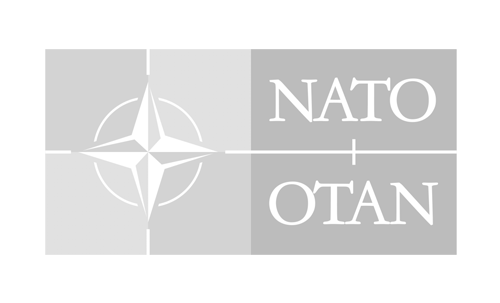
Rejecting Shashi Tharoor’s Brand Of Change: Final Addition To The Congress’ Graveyard Of Fallacies?
Earlier today, the octogenarian Mr. Mallikarjun Kharge was sworn in as the 98th President of India's oldest national party, the Indian National Congress. Founded in 1885, under the leadership of the British civil servant and later Indian sympathiser, Allan Octavian Hume, the INC is a party not new to revolutionary leadership or intermittent spells of mediocrity. In many ways, one can say that this is the sole party in India that has gone through every phase of political change. The question that one must answer now however is, is this one time political mammoth now on the road to extinction?
The media frenzy recently shifted on the Indian National Congress after a long dry spell and understandably so, given that soon after the heir-apparent Mr Rahul Gandhi cemented his idea of not returning to the President’s post with little signs of backtracking, a tough decision had to be made on who would take on the reins of the party.
Given the backlash endured by the party after successive defeats at the National and State level, the decision to have a full-time President had been welcomed by both, internal party workers and rivals who hoped to be led into a battle of equals in 2024.
Out of the initial three Congressmen who threw their hat in the ring and one subsequently disqualified, the Presidential seat became a contest between two equals, Dr. Shashi Tharoor and Mr. Mallikarjun Kharge.
Shashi Tharoor has been vociferous in his ideas for change for a long time now and began his campaign almost immediately after filing his nomination, gathering support from the delegates to ensure that his vision for Congress 2.0 was no longer just a vision. On the other hand, Mallikarjun Kharge lay low for a day or two and started his campaign later.
As the fate of the INC leadership hung in a balance, it is useful to note what Shashi Tharoor’s manifesto had to offer to the delegates within and the public at large. Interestingly, Tharoor’s rival contender, Mr. Kharge, soon titled the ‘Candidate of Continuity’ to match his rival’s ‘Candidate of Change’ was reluctant to share any personal idea or vision for change and if he did it was to no great detail. A firm believer in inclusivity, liberalism, pluralism and core democratic values, Tharoor’s manifesto however was a whiff of fresh air to those reading and absorbing it, as it reaffirmed his vision for the party on all fronts.
A lady from Germany wrote on Twitter that if Tharoor became President, she would return to India with her family because in him she saw hope. Another wrote in to say that he would even contemplate withdrawing support from a rival party if Tharoor indeed became President.
Which brings one to the critical question, What was so special about Tharoor and his manifesto that made people across the nation and the world immediately respond to the very idea of him becoming President. From Nehru to Rajiv Gandhi, the INC has been a party of visionaries, and Tharoor would have been an additional feather in the cap of the INC. A careful look at the manifesto can easily inspire the reader to want to know more. The overview of the Manifesto lauds the Indian National Congress stating in no uncertain terms that ‘no other Indian political party has a comparable process to determine its future leadership, and by adhering to its Constitution, the Congress can set a standard that will establish a compelling narrative to Indians that Congress is the best vehicle for the future of a democratic India.’ However, while Tharoor’s manifesto spoke to the past successes of the Congress, the critic who could remain unconvinced, was immediately led straight to the finer details.
Should one take a careful look at the first few points, it almost immediately highlights a multi-faceted change. Given that the party has had a rueful year with many of their stalwarts drifting to the other side, Tharoor’s stress on rejuvenating an old party with a renewed and strengthened youth base to earn their unwavering loyalty at every level of the hierarchy earned appreciation. This proposition was to further ensure a smooth transition of ideas, knowledge and hands-on experience as the older members eventually relegated to the background, ensuring that a strong core is maintained. One cannot overlook the fact that the old guard still held the reins of the party rather firmly making the young easily vulnerable to other lucrative options.
The idea of creating a formidable young foundation was quickly succeeded by decentralising power within the organisation. Tharoor advanced the idea of a shared responsibility for a stronger front to take on the BJP in 2024. A federal structure within the party, he believed, would reduce the internal trust deficit, ensuring that meritocracy ruled the day. Rather than continuing with a central control with higher likelihood for delays in appointments and other impending internal communications the decision to give more space to the states, would metamorphose into a binding force as the party would share its burden equally at all levels.
Reimagining the role of the AICC has become critical to the very survival of the INC ever since the perception of the AICC was reduced to one of minimal interaction, maximum exits. Under Tharoor, the AICC would depart from the routine and have five Vice Presidents representing each zone of the country with thematic responsibilities, stepping up individual and collective accountability. The increase in accountability would ease transparency issues within the party and have a steady blend of the young and old cadre working alongside each other in a more meaningful manner. A structured party would resonate with first-time voters whose current idea of the Indian National Congress, is no more than that of a grand old party in absolute disarray.
Then came another dangerous proposition, (and I say dangerous in view of the turn of events) in the form of a limitation of term for the office-bearers. Tharoor was hopeful that this would infuse new hope in the minds of those who sought to hold authority in the future and inspire party workers to engage in healthy competition rather than wait for the outcome of unilateral decision-making. One must not forget that even in the pre-independence era the Indian National Congress in its nascency, had Presidents for a term of one year. The idea was always to allow authority to pass on the basis of merit rather than seniority alone. One cannot underestimate the idea that a party which engages different leaders with the changing times is in better stead over one whose focus is to progress with redundant ideas.
Inclusivity has been the hallmark for all Shashi Tharoor’s speeches, literary work and ideas in India and abroad. For those following his career over time, the idea of one who engages, preaches and propagates an Inclusive India, is not new.
Reimagining the Congress as a level playing field for marginalised communities was important to strengthen the idea of a revised standard version of the Congress. Shashi Tharoor believed that the government ought to respect privacy, support civil liberties and respect the ideas of liberalism and pluralism and was confident that he would embolden his party to stand for these rights when he takes over as President. Despite a rough romance with the press over time, even today, Tharoor still manifests the need for an independent fourth estate, which is worth appreciating. A critical addition here is the need for consultative mechanisms which would indeed open the floor for broader debate and discussion where members of every rank and file will be able voice their opinion and participate directly in the decision-making processes.
Tharoor’s manifesto, apart from laying a strong case for the increase in participation of the youth, sought to replicate the idea that he first gained favour with as Chairman of the All India Professionals Congress, to increase female participation in the party by guaranteeing one-third of seats.
Speaking of which, given that Tharoor’s AIPC has members equal in number to the Congress voting delegates, it is important to note that had he been elected, his elevation would also translate into more professionals seeking to play a more meaningful role in the functionality of the party and confidently looking at an alternative to the ruling BJP. The increase in industry professionals would also mean a fair shift of perception of the working of the INC by the world outside and strengthen support further for 2024.
As one who has served his country on a global forum like the United Nations, Tharoor values the idea of a robust foreign policy for India and is quite certain that as President, he will be able to push for his party to counter the regime’s decisions in real-time.
What could be passed off as raw idealism however is the last point on the manifesto, to change the overall perception of vote-based politics to conscience-based politics. While India could very much do with more politicians whose commitment to the political arena is in Tharoor’s own words ‘an ethos of social work,’ the stark reality remains that on this point, the house will remain forever divided. The truth is that Shashi Tharoor is not a careerist and did not choose politics for name or fame. Careerists both young and old, may choose to differ because they need both (and more) to fuel up their very existence in the circuit. While Indian politics could do with many more Tharoors, the reality begs to serve as a harsh reminder that in India, politics may more often than naught be a primary source of livelihood for many. I am sure, Mr. Kharge will agree.
All in all Shashi Tharoor’s manifesto is a testament of change built on cautious hope and optimism that India and the Indian National Congress would do well acknowledging, accepting and adopting. But they haven’t. Kharge won 7897 votes while Tharoor won 1072 votes making it clear that the Congress is no longer the Party of Vision and Visionaries.
Interestingly as early as today another important event in world history has also made headlines, the appointment of Rishi Sunak, a member of British Asian origin who takes over as the Prime Minister of Britain. Not many are aware that Shashi Tharoor denied a British Passport to continue with his roots. But one would be foolish not to contemplate, had Tharoor chosen logic over an emotional sense of belonging perhaps, it could have been a Tharoor instead of a Sunak or maybe both in quick succession? I digress.
The truth is that today is a day of mixed emotions for the Indian National Congress for while they have elected a new President, they have made it clear that change is unacceptable and in many ways cemented their fate for 2024, as some have already lamented. The Congress Steering Committee which is the engine of the party has yet again conveniently side-lined Tharoor and all those who supported his candidature, which makes it important to ask the question, Is the Congress as fair as it claims to be? Why is the Congress unable to reconcile with the fact that having Tharoor or his supporters as a part of the core team is not the elevation of individuals but the escalation of progressive ideas that the INC and the nation could do well with? In many ways, Tharoor has not lost, for in rejecting his leadership, the party has rejected the will of the people. Kharge won the battle and lost the war. Brand Tharoor is a national phenomenon. Kharge has but 12 months to establish himself as a national brand of the public before the preparations for 2024 begin.
Mr. Kharge at the ripe old age of 80 may seem to believe that continuity is the way forward and I don’t blame him, but in a dynamic world, change is the only thing certain and the rejection of the inimitable Tharoor’s ideas of India, his vision for the Congress and his progressive qualities has ensured that the Congress will now have to work overtime to ensure that the INC at least maintains a respectable minority in the Lower House of Parliament lest it lose its National Party Status in 2024.



























